
You are reading:

You are reading:
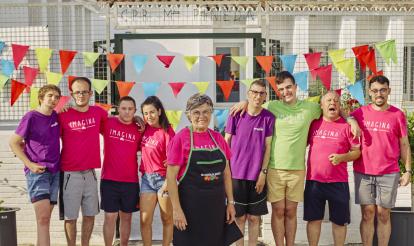
When Laura and María José set up the Imagina project, an association that promotes inclusive development in the interior of the province of Málaga, Mari Pepa, María José’s mother, threw herself into helping by welcoming the volunteers. Following the pandemic and at the age of 61, Mari Pepa was made redundant, but she found volunteering a way to feel useful. Now she teaches people with functional diversity how to work the land in the Mi Cachito de Huerto project, supported by the Calls for Social Projects programme of the ”la Caixa” Foundation.
Laura and María José, the founding partners of Imagina, chose different career paths: Laura took Business Studies and María José opted for Law and Political Science, but they met thanks to the Erasmus programme. “Although we’re both from Málaga, we’d never met. Who knows where we’d be now if we hadn’t taken part in youth exchanges,” Laura wonders. After being involved in several projects in different countries, they got to know each other while supporting two groups of young people who were to participate in projects in Lithuania and Poland in the following months. As youth leaders in those meetings, in addition to exchanging practical information they discovered they had very similar ideas about how they saw the world and their country. From that spark, Imagina was born.
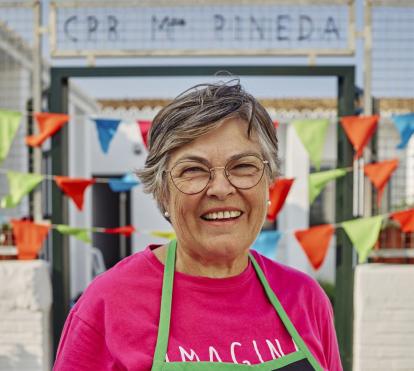
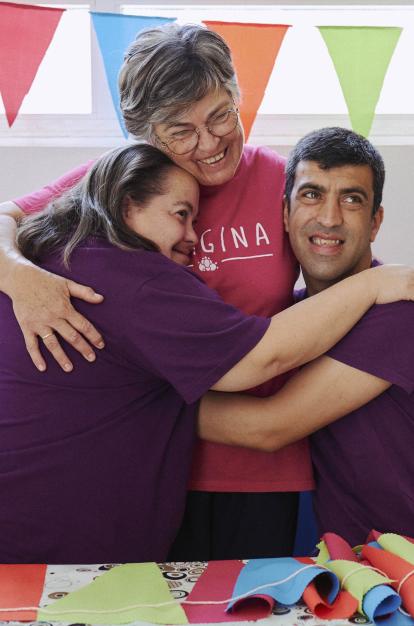
In the beginning, it was just an informal group of young people promoting exchanges with other places in Europe. “This allowed us to encourage our friends to leave home and discover new cultures, and at the same time to introduce our country to young people from all over Europe.” In 2017, they founded an association and launched their first programme, Pueblos de Colores, with the support of the Calls for Social Projects programme of the ”la Caixa” Foundation. Laura and María José had noticed that people with disabilities in the villages and neighbourhoods of the Valle de Guadalhorce did not have all their needs met. So they developed a support programme based on creativity, personal and rural empowerment and group growth. With the help of European volunteers aged between 18 and 30, whom they host for 10 months thanks to European programmes, they work with these people in villages in the province.
“Throughout these five years we’ve followed this same logic. We’re in touch with the territory, we grow by cooperating with Europe and, depending on the needs we identify, we propose initiatives that can respond to our challenges,” explains María José. This has given rise to various projects. In 2019, they launched the Gallinero Social, a programme in which people with disabilities looked after a chicken coop. Later, they started the Casa de los Soles, a programme aimed at giving disabled people an independent life in the Cerralba shelter. And then they started the Mi Cachito de Huerto project. In this, 30 people between the ages of 16 and 60 cultivate a vegetable garden, prepare healthy food such as salads and gazpacho, and lead a more active and healthy life by working in groups during the workshops.
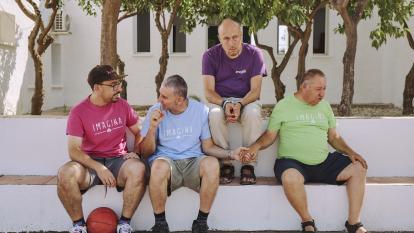
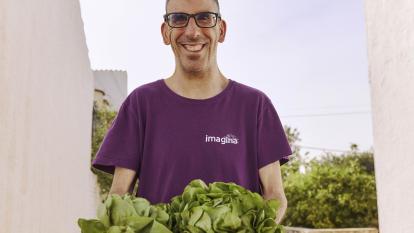
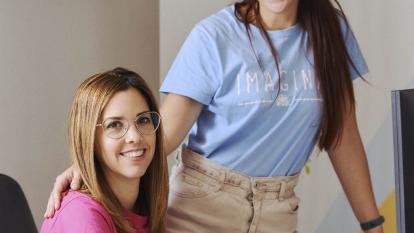
It is through these projects that Imagina has grown. “We have to crunch a lot of numbers to make it all add up,” admits Laura, but she is proud of the work she has done. “It allows us to help people with disabilities, but also to prevent the depopulation of the area.” All the workers at Imagina are important, but there is one very special person. As María José’s mother, Mari Pepa has been involved in the project from the beginning. “As soon as the first volunteers started arriving from Europe, she offered to make them paella. And her work never ended there. She would give them a hand with the apartment or bring glasses for a party...”
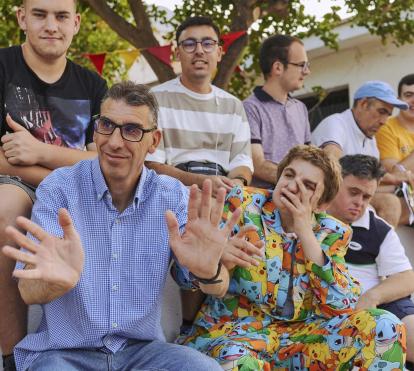
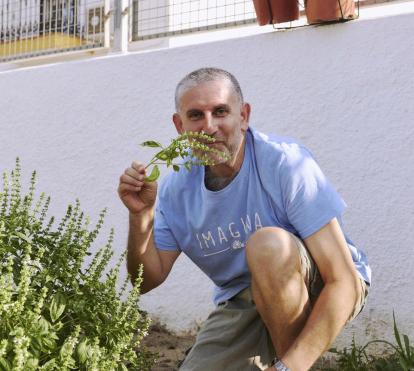
After the pandemic, Mari Pepa was made redundant and, at the age of 61, found herself with little prospect of finding work again. Volunteering enabled her to feel useful and to help others, and ultimately gave her the opportunity to re-enter the world of employment after training to teach and work with people with functional diversity. Today, Imagina can pay her a salary and the circle is complete. Moreover, Mari Pepa feels that life has allowed her to return to her roots. “I grew up in this valley and live in the village of Cártama. My father, Joaquín, had a small field where he taught me how to grow things. We had tomatoes, peppers and onions. For many years, I worked and in the evenings took care of my elderly father. But I always said to my daughter: ‘When I don’t have to look after anyone anymore, I’d like to spend my time helping people.’ Now I help and teach how to cultivate the land. Who’d have thought that after so many years I would return to my roots, teaching people to work the land, just as my father taught me!?”
Mari Pepa’s story is part of the documentary project Life stories, 14 stories of overcoming adversity which gives a voice to people at risk of exclusion who share their experiences in order to raise public awareness.